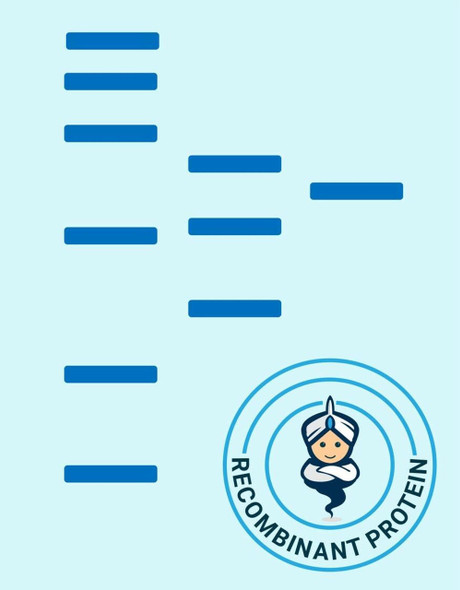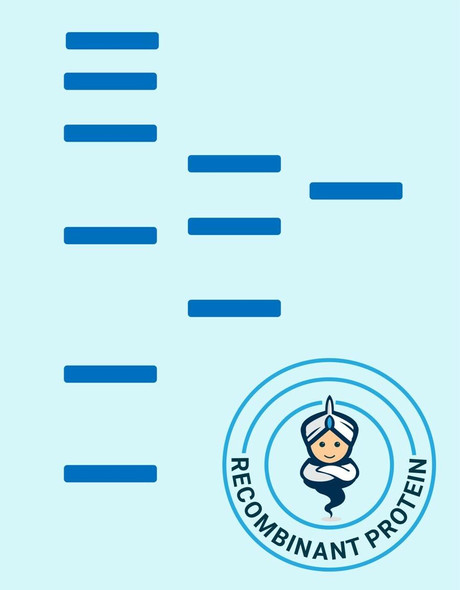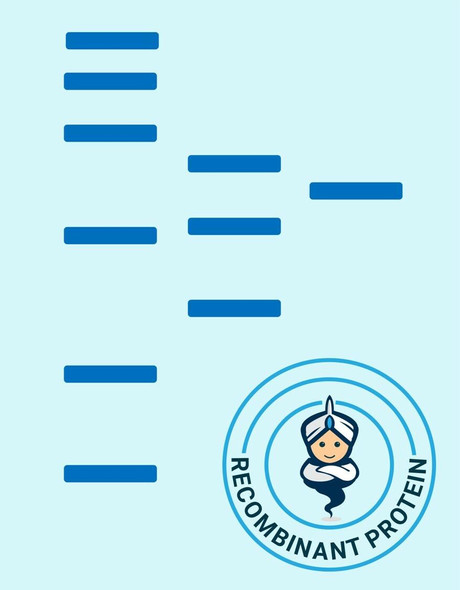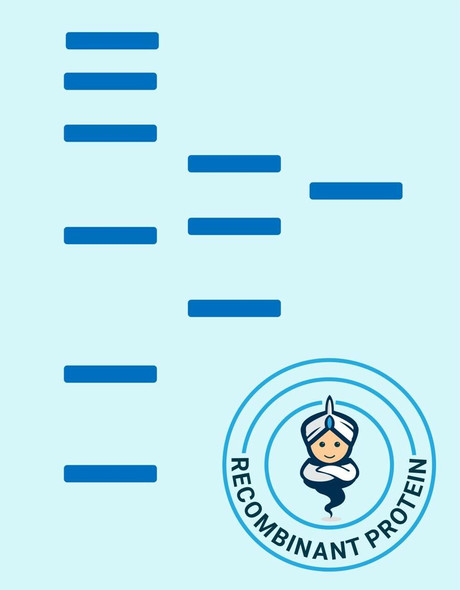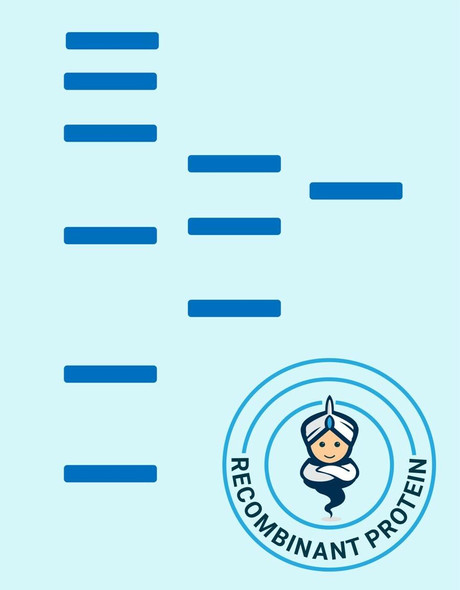Human KRT8 Recombinant Protein (RPPB3824)
- SKU:
- RPPB3824
- Product Type:
- Recombinant Protein
- Species:
- Human
- Uniprot:
- P05787
Description
| Product Name: | Human KRT8 Recombinant Protein |
| Product Code: | RPPB3824 |
| Size: | 5µg |
| Species: | Human |
| Target: | KRT8 |
| Synonyms: | Keratin type II cytoskeletal 8, Cytokeratin-8, CK-8, Keratin-8, K8, KRT8, CYK8, KO, CK8, K2C8, CARD2. |
| Source: | Escherichia Coli |
| Physical Appearance: | Sterile Filtered clear solution. |
| Formulation: | Cytokeratin-8 in 50mM Tris-HCl pH-7.5, 10mM L-glutathione (reduced). |
| Stability: | Store vial at -20°C to -80°C. When stored at the recommended temperature, this protein is stable for 12 months.Please prevent freeze-thaw cycles. |
Cytokeratin 8 belongs to the type B (basic) subfamily of high molecular weight keratins and exists in combination with keratin 18. Cytokeratin 8 is primarily found in the non-squamous epithelia and is present in majority of adenocarcinomas and ductal carcinomas. It is absent in squamous cell carcinomas. Hepatocellular carcinomas are defined by the use of antibodies that recognize only cytokeratin polypeptides 8 and 18.
Cytokeratin 8 Human Recombinant full length protein expressed in E.coli, shows a 78 kDa SDS-PAGE.The Cytokeratin 8 is fused to GST-Tag and purified by proprietary chromatographic techniques.
| UniProt Protein Function: | K8: a type II cytoskeletal keratin. The keratins are intermediate filament proteins responsible for the structural integrity of epithelial cells and are subdivided into cytokeratins and hair keratins. Phosphorylation of keratins at specific sites affects their organization, assembly dynamics, and their interaction with signaling molecules. Phsophorylated by p38 kinase, regulating cellular keratin filament reorganization. Phosphorylation on serine residues is enhanced during EGF stimulation and mitosis. Mutation of this protein is a risk factor for cryptogenic liver failure. |
| UniProt Protein Details: | Protein type:Cytoskeletal Chromosomal Location of Human Ortholog: 12q13 Cellular Component: dystrophin-associated glycoprotein complex; nucleoplasm; intermediate filament cytoskeleton; nuclear matrix; costamere; cytoplasm; keratin filament; intermediate filament; intercellular junction; Z disc; nucleus; sarcolemma Molecular Function:protein binding; protein complex binding; structural molecule activity Biological Process: tumor necrosis factor-mediated signaling pathway; viral reproduction; response to other organism; sarcomere organization; response to hydrostatic pressure Disease: Cirrhosis, Familial |
| NCBI Summary: | This gene is a member of the type II keratin family clustered on the long arm of chromosome 12. Type I and type II keratins heteropolymerize to form intermediate-sized filaments in the cytoplasm of epithelial cells. The product of this gene typically dimerizes with keratin 18 to form an intermediate filament in simple single-layered epithelial cells. This protein plays a role in maintaining cellular structural integrity and also functions in signal transduction and cellular differentiation. Mutations in this gene cause cryptogenic cirrhosis. Alternatively spliced transcript variants have been found for this gene. [provided by RefSeq, Jan 2012] |
| UniProt Code: | P05787 |
| NCBI GenInfo Identifier: | 90110027 |
| NCBI Gene ID: | 3856 |
| NCBI Accession: | P05787.7 |
| UniProt Secondary Accession: | P05787,Q14099, Q14716, Q14717, Q53GJ0, Q6DHW5, Q6GMY0 Q6P4C7, Q96J60, A8K4H3, B0AZN5, F8VXB4, |
| UniProt Related Accession: | P05787 |
| Molecular Weight: | 483 |
| NCBI Full Name: | Keratin, type II cytoskeletal 8 |
| NCBI Synonym Full Names: | keratin 8 |
| NCBI Official Symbol: | KRT8�� |
| NCBI Official Synonym Symbols: | K8; KO; CK8; CK-8; CYK8; K2C8; CARD2�� |
| NCBI Protein Information: | keratin, type II cytoskeletal 8; cytokeratin 8; cytokeratin-8; type-II keratin Kb8 |
| UniProt Protein Name: | Keratin, type II cytoskeletal 8 |
| UniProt Synonym Protein Names: | Cytokeratin-8; CK-8; Keratin-8; K8; Type-II keratin Kb8 |
| Protein Family: | Keratin |
| UniProt Gene Name: | KRT8�� |
| UniProt Entry Name: | K2C8_HUMAN |




